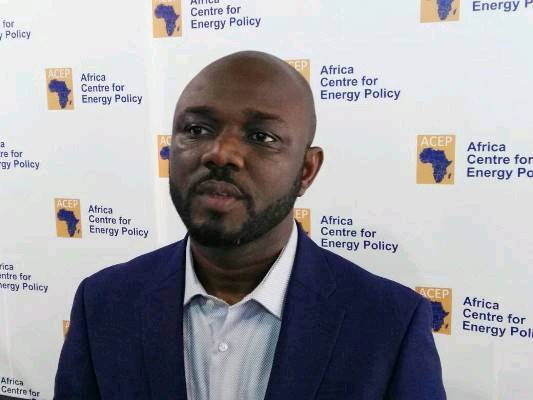Ghana’s energy sector, a critical pillar of the country's economy, is teetering on the brink of collapse. Benjamin Boakye, the Executive Director of the Africa Centre for Energy Policy (ACEP), has painted a troubling picture of an industry riddled with inefficiencies, mismanagement, and wasted resources. In a recent detailed opinion piece, Boakye raised alarm about the current state of the energy sector, warning that without immediate reforms, the situation could spiral out of control, leading to severe economic consequences.
According to Boakye, Ghana's energy sector loses over GH¢50 billion every year due to wasteful practices and mismanagement. To put this in perspective, this amount is more than the country’s annual revenue from oil exports. Instead of serving as a catalyst for economic growth, the energy sector has become a financial burden, with ordinary citizens paying the price through increased taxes, levies, and inflated energy costs.
One of the most glaring issues Boakye highlighted is the rampant overstaffing in energy agencies. Many of these roles, he argued, are the result of politically motivated appointments rather than the actual needs of the sector. This practice not only drives up public spending but also fails to bring about any meaningful improvement in efficiency. Essentially, taxpayers are footing the bill for a bloated system that benefits only a few.
The Electricity Company of Ghana (ECG), one of the largest entities in the energy sector, is a prime example of these inefficiencies. Boakye described the ECG as a massive drain on national resources. Poor management practices and relentless political interference have left the company struggling to operate efficiently. Instead of contributing to the country’s development, the ECG has become a financial black hole, relying heavily on the national budget to stay afloat.
Boakye explained that the ECG’s inefficiencies are not just a corporate problem but one that affects every Ghanaian. When the company fails to deliver reliable and affordable electricity, businesses suffer, leading to job losses and a weakened economy. Households, too, are forced to deal with frequent power outages and rising electricity bills, making life harder for ordinary people.
But the issues don’t stop with the ECG. Boakye also turned his attention to the upstream oil and gas sector, which he described as being on a dangerous downward trajectory. Ghana’s oil and gas industry, once a promising source of revenue and development, is now struggling to attract investment. Boakye warned that if nothing is done to address the underlying issues, the sector could miss out on an estimated $2 billion in potential investments by 2025. This loss would further cripple the country’s economy, leaving fewer resources to address pressing social and developmental needs.
One of the major reasons for the decline in investor confidence is the lack of transparency and predictability in the sector. Companies are hesitant to invest in an environment where policies frequently change, and corruption appears to be rampant. Boakye called on the government to take swift and decisive action to rebuild trust with investors. By creating a stable and transparent regulatory framework, the government can attract the investments needed to revitalize the sector.
The path to reform, however, will not be easy. Boakye stressed that it will require bold and sometimes unpopular decisions. He called on President-elect John Mahama to rise to the occasion and address the systemic issues plaguing the energy sector. According to him, the situation demands nothing short of a “surgical examination” to weed out inefficiencies and restore sustainability.
One of the first steps, Boakye suggested, is to depoliticize the management of energy agencies. This means ending the practice of appointing individuals based on their political affiliations rather than their qualifications or expertise. By putting competent and experienced professionals in charge, these agencies can begin to operate more efficiently and effectively.
Additionally, Boakye emphasized the need for stricter oversight and accountability measures. Corruption and mismanagement thrive in the absence of checks and balances. By holding those in charge accountable for their actions, the government can begin to restore public trust in the energy sector.
Boakye also urged the government to prioritize renewable energy as part of its reform agenda. With global energy trends shifting towards cleaner and more sustainable sources, Ghana has an opportunity to tap into this growing market. Investing in renewable energy not only helps the environment but also creates jobs and reduces the country’s dependence on expensive fossil fuels.
While the challenges facing Ghana’s energy sector are daunting, they are not insurmountable. Boakye’s critique serves as both a warning and a call to action. The time to act is now, before the problems grow even worse and the cost of inaction becomes unbearable.
Ultimately, the future of Ghana’s energy sector—and by extension, its economy—depends on the choices made today. Will the government take the bold steps needed to bring about meaningful change, or will it continue down the path of inefficiency and mismanagement? For the sake of every Ghanaian, one can only hope that leaders rise to the challenge and steer the sector toward a brighter, more sustainable future.



